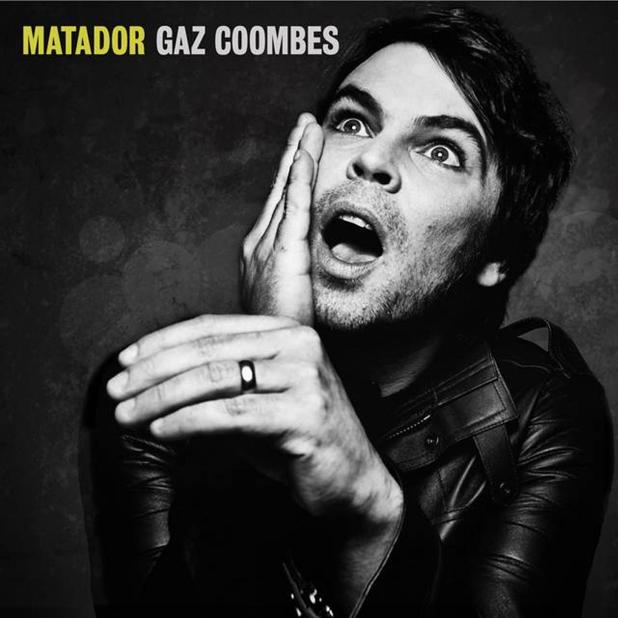Of all of their contemporaries, Supergrass were always the most instinctive and least contrived of bands. Still in their teens by the time of the release of their debut, I Should Coco, the trio brilliantly caught the joys and traumas and the ups and downs of their halcyon days with a wit and verve that was immediately recognisable to those going through the pains of growing up as well to those who’d already broken through that barrier. After all, they were young, they ran green and they kept their teeth nice and clean yet by the time they reached their penultimate album, Road To Rouen, the mood was palpably darker and worn before bowing out with Diamond Hoo Ha.
In terms of chronicling a particular point in time of life’s long journey, little has changed with Gaz Coombes’ modus operandi, but what is noticeably different is the method of his delivery. Matador, the second solo record from Coombes, is quite probably the best collection of material that he’s put his name to, and one that stands as a fine testament to consolidation, reflection and what the future may bring as he fast approaches his fortieth birthday. The hints are more than in evidence before a note of music is played thanks to an expressive cover that speaks volumes in a way that so much album artwork doesn’t. Shot in stark monochrome, Coombes’ startled expression, his eyes heavy with kohl, harks back to the quirky humour of his previous band, yet there in the foreground is his left hand prominently displaying his wedding ring. Here he is on the cusp, straddling that fine line between maturity and impetuous urges whilst still maintaining that creative spark that’s ready to burst into flame.
A statement of intent is one thing, but to deliver upon it with chops, imagination and a recognisable empathy is quite another and it’s here that Matador really shines. His innate ability with a memorable melody is firmly in evidence throughout but it’s his explorations into electronica, loops and programmed beats that really give meat to the sensitive and beautifully evocative confessionals that beat at the heart of this album.
The portentous piano chords that usher in ‘Buffalo’ are beefed up by melancholic electronics that add to the sense of sadness and realisation as Coombes sings, "Take me home… I lost my way but I found the only road", and his pain and possible salvation is keenly felt as the song rises to a swelling crescendo before finally giving way to something resembling peace of mind. Similarly, ’20/20′ which follows immediately after, offers more redemption with Coombes realising that, "If I can make the night then I’m home and dry" with a backing that effortlessly combines gospel dynamics propelled by skittering dubstep beats.
Indeed, the darkness of the night and the long shadows that are cast are what veil Matador like a shroud, but throughout it all, there’s more than a glimmer of redemption. In a wonderfully sequenced triptych of songs, we find Coombes mired in the blizzard of cocaine that becomes the undoing of so many bands and their lives, through to finding love before holding on to it and looking ahead with a newly found mood of vigour and priority. The use of motorik beats and a driving, repetitious bassline on the first of these, ‘Detroit’, is superbly evocative of those teeth grinding nights where the mind turns to mush and paranoia and the body runs on empty as it takes an extended overdraft from tomorrow and the day after and the day after that and beyond to keep going. Crucially, Coombes never invites sympathy; he’s painfully aware of the damage done and the fact that it’s been created by his own hand. The stepping stone is ‘Needle’s Eye’, with Coombes breathing a near sigh of relief: "I found you in time/I passed through the needle’s eye", and as we reach the beautiful ‘Seven Walls’, we find love and affirmation. Over minimal piano chords, drones and gently dancing programmed arpeggios, Coombes courts his wife as they take in the simple pleasures of his home town while sharing a cheeky smoke and seizing the night as their own.
A lifetime ago Mick Jagger sang, "What a drag it is getting old", yet with Matador Coombes emphatically and convincingly states that this just isn’t the case. Matador is a consolidation of life’s many wonders and that what’s needed is an ability to prioritise the things that are important and those that aren’t. This is a bold confessional and one made all the stronger by music that’s creative and daring without ever once straying into disco dad territory. Warm, empathetic and human throughout, this new guise of maturity is worn with all the comfort and convincing style of your first tailored suit. And you know what? It really fits him really well.
<div class="fb-comments" data-href="http://thequietus.com/articles/17140-gaz-coombes-matador-review” data-width="550">



